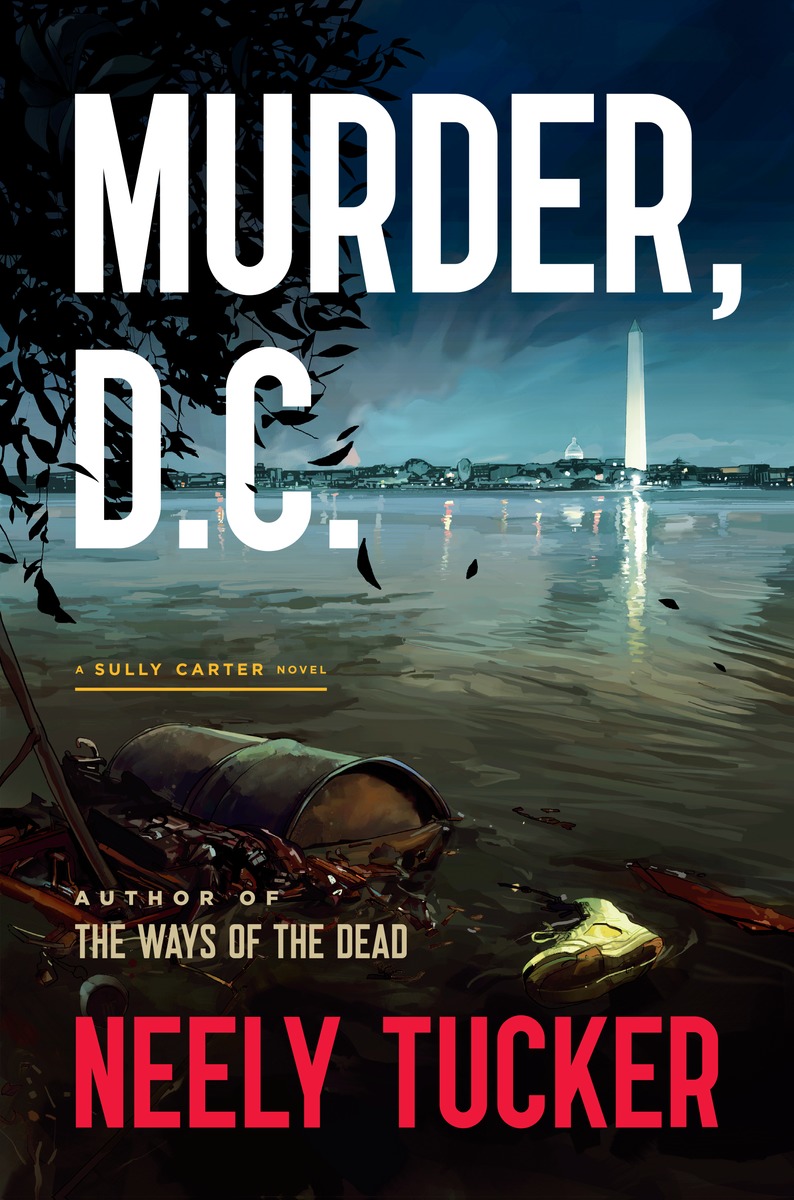
Murder, D.C.--A Sully Carter Novel
A Sully Carter Novel Series, Book 2
کتاب های مرتبط
- اطلاعات
- نقد و بررسی
- دیدگاه کاربران
نقد و بررسی

May 11, 2015
In Tucker’s disappointing second Sully Carter novel (after 2014’s The Ways of the Dead), the hard-drinking Washington, D.C., journalist—still recovering from injuries sustained while reporting overseas during the Bosnian War—investigates the alleged murder of a young black man in a small park known as Frenchman’s Bend: “a place where drugs and homicide are as common as rainfall.” The deceased, Billy Ellison, was the last heir of one of the city’s most prominent families. Given the lack of leads and Ellison’s mother blaming the death on her son’s involvement in the drug trade, everyone involved just wants the tragedy to go away. But when Carter, who is white, digs deeper—maneuvering his way through a minefield of street thugs, crime lords, and morally bankrupt lawyers—he stumbles across a dark secret with roots that stretch back generations. Spot-on dialogue and a vividly described setting compensate only in part for Carter’s stock character and an underwhelming solution to the mystery. Agent: Elyse Cheney, Elyse Cheney Literary Associates.

Starred review from May 15, 2015
A follow-up to Tucker's debut, The Ways of the Dead (2014), that's leaner and (much) meaner than its predecessor. Barely a year has passed since Tucker, a veteran feature writer for the Washington Post, introduced battered, boozing District of Columbia crime reporter Sully Carter. That may seem like a quick turnaround, but the book sure doesn't read like one. Tucker's control of the crime-genre idiom is far more confident; his narrative pacing more measured; and his dialogue, which was his first novel's principal selling point, is snappier and jazzier but also more controlled. This book's events take place a couple years after those of its predecessor-which puts them at the hinge of the millennium, as some D.C. neighborhoods were still in the throes of the drug trade. A young gay African-American man named Billy Ellison is found dead along the Potomac River basin with a bullet in his head. At first, Carter, along with local homicide detectives, believes Billy to be just another victim of the District's drug wars, even though his relatively privileged background gets him more ink than some of the other at-risk youths gunned down in the Frenchman's Bend neighborhood. But one of Sully's best sources, a sinister crime kingpin named Sly, suggests there's much more going on in "The Bend" than Billy's death. "That's the trouble with you reporters," Sly says sagely. "Y'all always lookin' at the wrong thing, barking up the wrong goddam tree. Woof woof over here, woof woof over there." Though it yields him some sleepless nights and glow-in-the-dark bruises, Sully probes deeper into the neighborhood and Billy's death and uncovers a rat's nest of betrayal, deceit, and brutality that stretches back as far as the days when The Bend was a Southern slave marketplace. Tucker takes firm control of his seemingly disparate plot points and in the process puts forth a darkly comedic vision of race and justice (or lack thereof) over generations of American history. There's no more satisfying sight than a writer who knows exactly what he's doing-and only gets better at what he does.
COPYRIGHT(2015) Kirkus Reviews, ALL RIGHTS RESERVED.

May 15, 2015
The ghost of Elmore Leonard floats over these pages. Readers will recognize the declarative sentences with question marks at the end. And the effort to transmute slang into poetic gold: And brother man says, he says, I got my own goddamn gun! And then pulls it out and blam . . . . Those who treasure this sort of thing, and even those who find them tiresome, should know that Tucker quickly establishes himself as his own man. His hero, Sully Carter, is a reporter for a Washington, D.C., daily and the first on the scene when the scion of an elite black family is found dead in a drug-drenched part of town. Was he buying? Selling? Whoring? Sully investigates on his own because the powers have shut down a police inquiry that might reveal that this fine fellow was, well, something else. The solution is all and none of these, and Sully gets there by working through thickets of cops, killers, and newspaper editors, all of whom he respectfully calls corporate pinheads. The prose has a tactile feel, and Sully wears well. This is a noir treasure, if a slightly overlong one.(Reprinted with permission of Booklist, copyright 2015, American Library Association.)

























دیدگاه کاربران